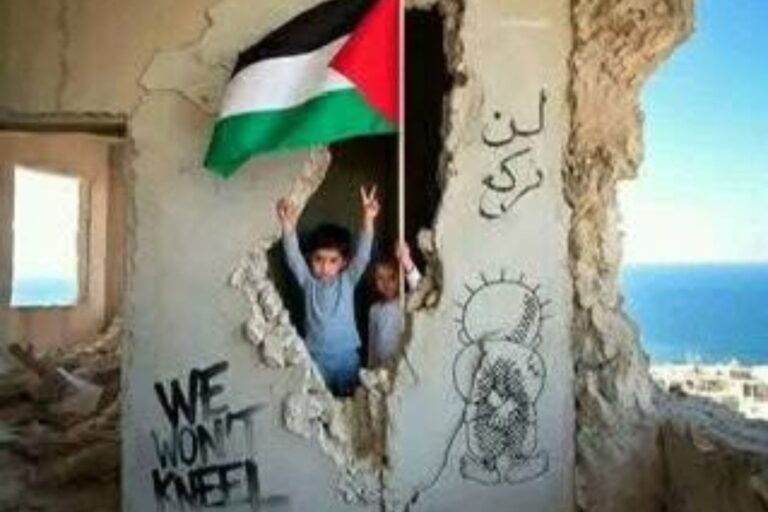It’s time to talk about some big news from the Middle East. After 15 long months of conflict, we’ve finally seen a glimmer of hope: Hamas and Israel have agreed to a ceasefire in Gaza. This is huge, and I can’t help but feel a mix of relief and cautious optimism.
Let’s take a moment to reflect on the human cost of this war. The numbers are heartbreaking: 46,707 lives lost, including 18,000 children. It’s hard to wrap our heads around such figures. Each number represents a person, a family, or a story cut short.
South Africa, a country with a history of overcoming conflict, has described this ceasefire as a “crucial first step” toward ending the crisis. I think many of us share that sentiment – it’s a step, but there’s still a long road ahead.
Details of the Ceasefire
The deal with this ceasefire is that it’s set to kick in on Sunday, January 19th. I remember thinking, “Finally, a date we can look forward to!” Hamas official Izzat al-Risheq confirmed that they’ve met all the conditions: Israeli forces will withdraw, displaced people can return home, and there’s a promise to permanently end the war and this sounds promising.
South Africa’s Stance on the Ceasefire
South Africa isn’t just sitting on the sidelines here. Chrispin Phiri, the spokesperson for their Department of International Relations and Cooperation (Dirco), has been vocal about the need for a just peace. They’re not just talking about a temporary pause in fighting; they’re pushing for something more substantial.
South Africa is calling for the establishment of a real, independent Palestinian state – one that’s connected and viable. They’re also emphasizing how important it is to stop the expansion of illegal settlements and to preserve the territorial integrity of Palestinian land. It’s a bold stance, but one that many feel is necessary for lasting peace.
Human Rights and Humanitarian Concerns
You know, it’s not just about politics and borders. South Africa is putting the spotlight on human rights – for both Palestinians and Israelis. They’re reminding everyone that this conflict has real, human consequences.
The International Court of Justice (ICJ) has even described the situation in Gaza as “plausibly genocidal.” That’s a heavy term, and it drives home the urgency of the situation. South Africa is pushing hard for unrestricted humanitarian aid to reach Gaza. I can’t help but think of the families there, desperately in need of food, water, and medical care.
International Court of Justice (ICJ) Rulings and Obligations
Speaking of the ICJ, they’ve made several rulings against Israel’s occupation of Gaza and the West Bank. South Africa is urging everyone to stick to international and humanitarian law. They’re not asking for the moon here – just necessities like food, water, shelter, and healthcare for people in Gaza. It’s the kind of thing that shouldn’t even be up for debate.
South Africa’s Genocide Case at the ICJ
South Africa has been busy on the legal front too. In December 2023, they filed an 84-page application at the ICJ, accusing Israel of genocide. That’s a big deal. The ICJ granted some interim measures, but sadly, they haven’t had much impact on Israel’s actions so far.
South Africa didn’t stop there. They’ve submitted a comprehensive memorial, packed with evidence of what they say is genocide in Gaza. It’s tough reading, but it’s important that these issues are being brought to light on an international stage.
ICJ’s Findings on Israel’s Occupation
Here’s where things get even more serious. In July 2024, the ICJ dropped a bombshell with an advisory opinion that declared Israel’s occupation illegal. They didn’t mince words, talking about racial segregation, apartheid, and violations of international law. The court even called for reparations to Palestinians. It’s a landmark decision that could have far-reaching consequences.
South Africa’s Broader Role in Advocacy
South Africa isn’t just focused on legal battles. They’re consistently supporting Palestinian sovereignty and territorial integrity. They’ve welcomed reports from organizations like Amnesty International that have found evidence of genocide. In many ways, South Africa has become a key voice amplifying Palestinian concerns on the global stage.
Conclusion: A Path to Peace and Justice
So, where do we go from here? This ceasefire is a necessary step, but it’s not the end of the road. South Africa is pushing for a lasting peace through a two-state solution and strict adherence to international law. They’re calling on the world to support justice, human rights, and humanitarian relief in Gaza.
As I think about all this, I can’t help but feel a mix of hope and concern. Peace seems possible, but it’s going to take a lot of work and goodwill from all sides. What do you think? Is this ceasefire the beginning of real change, or just a temporary lull? Let’s keep our eyes on Gaza and hope for the best while pushing our leaders to do the right thing.

